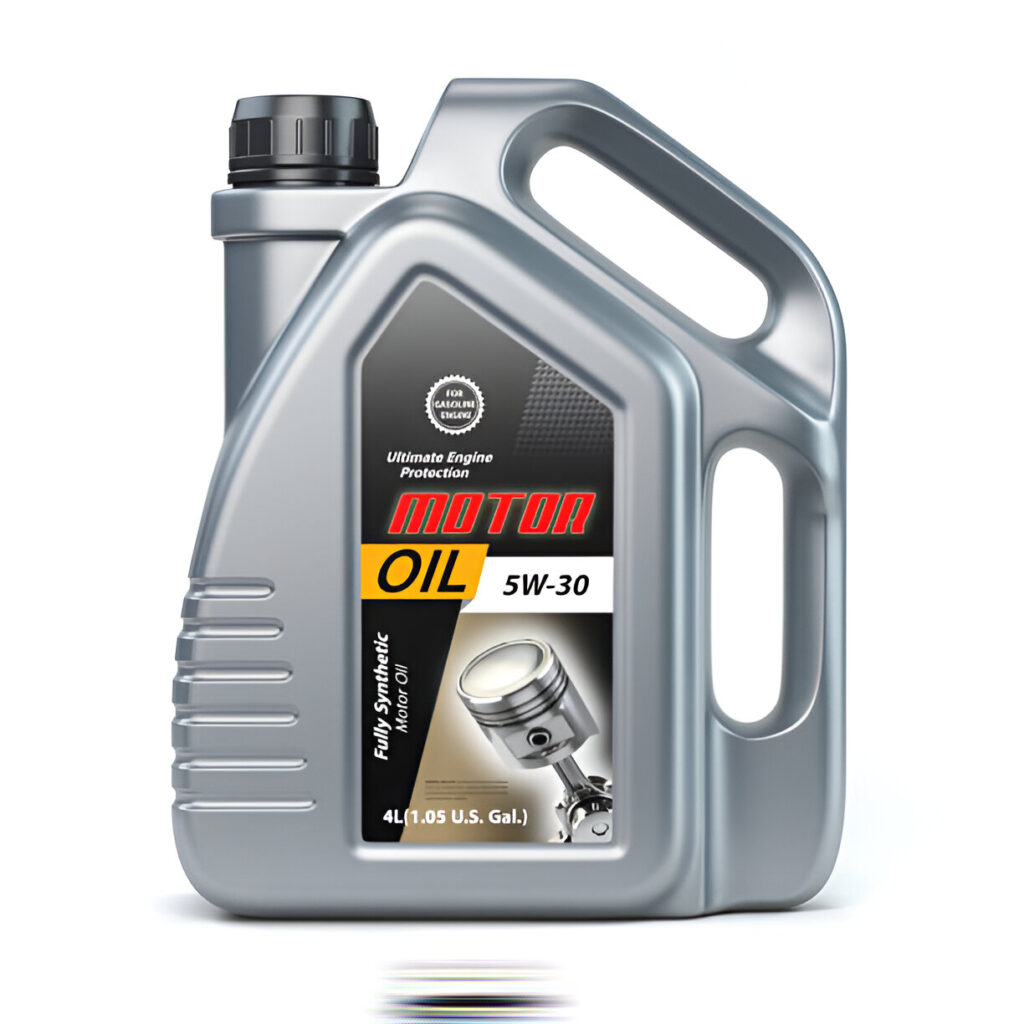Yes, engine oil is combustible, but it is not considered highly flammable like gasoline. It requires a significant amount of heat, with a flash point between 300°F and 450°F, to ignite.
Engine oil is a crucial fluid that keeps a vehicle’s engine running smoothly, providing lubrication, cooling, and protection to vital components. However, many people wonder, is engine oil flammable? The short answer is: engine oil can burn, but it is not classified as highly flammable like gasoline. Understanding the flammability of engine oil is important for vehicle safety, proper handling, and environmental considerations.

Contents
What is Engine Oil?
Engine oil is a petroleum-based or synthetic lubricant that plays a crucial role in the operation of internal combustion engines. Its primary functions include:
- Lubrication: It reduces friction between moving engine parts.
- Cooling: It absorbs and dissipates heat generated by the engine.
- Cleaning: It helps carry away dirt and contaminants from inside the engine.
- Protection: It prevents corrosion and wear on engine components.
Engine oil can be categorized into three main types:
- Conventional Oil: Derived from crude oil and refined with additives to enhance performance.
- Synthetic Oil: Chemically engineered for improved performance, especially at extreme temperatures.
- Synthetic Blend Oil: A mixture of synthetic and conventional oils for a balance of performance and affordability.
Is Engine Oil Flammable?
The term “flammable” refers to substances that easily ignite and burn at relatively low temperatures. Engine oil, while capable of burning, is not classified as highly flammable in the same way gasoline is. This distinction is important for understanding how engine oil behaves under heat and fire conditions.
Flash Point of Engine Oil
To determine how flammable a substance is, we often refer to its flash point—the lowest temperature at which it can vaporize to form an ignitable mixture with air. The flash point of engine oil typically falls between 300°F (150°C) and 450°F (230°C), depending on the specific type and formulation.
For comparison, gasoline has a much lower flash point of around -45°F (-43°C), which means it can easily ignite at room temperature, making it highly flammable. Engine oil, on the other hand, requires much higher temperatures to catch fire, which is why it’s considered combustible rather than flammable.
Autoignition Temperature
Another important property is the autoignition temperature, which is the temperature at which a substance will spontaneously ignite without an external flame or spark. The autoignition temperature for engine oil is around 700°F to 800°F (370°C to 430°C), meaning it needs to reach very high temperatures before it can ignite on its own.
Combustibility
While engine oil is not highly flammable, it is combustible. When heated to high temperatures or exposed to an open flame, engine oil can burn. However, in everyday conditions (such as within a vehicle’s engine or during storage), it is unlikely to catch fire without extreme circumstances.
Why Does Engine Oil Burn in an Engine?
Even though engine oil has a high flash point, it can still burn in certain situations, particularly in high-performance engines or under extreme heat. Here are some common reasons why engine oil might burn:
High Operating Temperatures
In an internal combustion engine, temperatures can reach well over 400°F (200°C). While this is below the flash point of engine oil, the continuous exposure to such high temperatures can cause the oil to break down and burn over time, particularly in older engines or engines running on low-quality oil.
Oil Leaks
Oil leaks onto hot engine components like the exhaust manifold can cause the oil to ignite, as the surface temperature of these parts can exceed the oil’s flash point. This is why it’s important to address oil leaks promptly to avoid potential fire hazards.
Engine Oil Consumption
Some engines, especially those with worn piston rings or valve seals, may burn oil during normal operation. When oil seeps into the combustion chamber, it mixes with fuel and air, combusting alongside the fuel. While this isn’t the same as the oil itself catching fire outside the engine, it results in oil loss and increased emissions.
Handling and Storing Engine Oil Safely
Although engine oil is not highly flammable, it’s important to handle and store it properly to reduce the risk of accidents or fires. Here are some safety tips for handling and storing engine oil:
Storage
- Keep away from heat sources: Store engine oil in a cool, dry place away from direct sunlight, heat, or open flames. Exposure to heat can increase the temperature of the oil and raise the risk of combustion.
- Proper containers: Use airtight containers designed for oil storage. This prevents spills, contamination, and evaporation of oil additives.
- Ventilation: Store oil in a well-ventilated area to prevent the accumulation of oil vapors, which can pose a fire hazard.
Handling
- Avoid spills: Clean up any oil spills immediately, especially if the spill occurs near hot surfaces or electrical components that could ignite the oil.
- Use appropriate equipment: Wear gloves and protective gear when handling engine oil to avoid skin contact, as prolonged exposure can cause irritation.
- Disposal: Used engine oil is considered hazardous waste and must be disposed of properly. Do not pour it down drains or into the soil. Instead, take it to a recycling center or an authorized disposal site.

Engine Oil and Fire Safety
Engine oil fires are rare but can occur in certain situations. Here’s what you need to know about engine oil and fire safety:
What Happens if Engine Oil Catches Fire?
When engine oil is exposed to an open flame or reaches its flash point, it can catch fire. The oil will typically burn with a thick, black smoke due to the hydrocarbons present in the oil. These fires can be difficult to extinguish with water, as oil and water don’t mix, and water can spread the burning oil.
How to Extinguish an Oil Fire
In case of an engine oil fire, never use water to put it out. Instead, use a Class B fire extinguisher, which is specifically designed to handle fires involving flammable liquids such as oil and gasoline. Dry chemical extinguishers or foam-based extinguishers are effective at smothering oil fires.
Fire Hazards in Automotive Repairs
If you’re working on your vehicle and have spilled oil, be cautious of any nearby heat sources such as lit cigarettes, sparks from tools, or hot engine parts. Oil-soaked rags should be disposed of properly, as they can ignite if exposed to heat.
Common Myths About Engine Oil and Flammability
There are several misconceptions about engine oil and its flammability. Here are some common myths debunked:
Myth 1: Engine oil is as flammable as gasoline.
Fact: While both engine oil and gasoline are derived from petroleum, gasoline is far more volatile and flammable than engine oil. Gasoline has a much lower flash point, making it highly flammable at room temperature, whereas engine oil requires significantly higher temperatures to catch fire.
Myth 2: Synthetic oil is less flammable than conventional oil.
Fact: Both synthetic and conventional oils have similar flash points and are considered combustible rather than highly flammable. The difference between synthetic and conventional oil lies in their performance characteristics, not their flammability.
Myth 3: You can put out an engine oil fire with water.
Fact: Water should never be used to extinguish an engine oil fire, as it can spread the oil and intensify the fire. Always use a Class B fire extinguisher designed for oil and fuel fires.
Related Article
Does Engine Oil Go Bad?
Does Engine Oil Have a Shelf Life?
Does Engine Oil Expire?
Frequently Asked Questions
Here are some FAQs about engine oil flammability –
1. Can engine oil catch fire in normal engine conditions?
In normal engine conditions, engine oil should not catch fire. However, if there is an oil leak or if the oil comes into contact with extremely hot surfaces, such as the exhaust manifold, it can ignite.
2. What is the flash point of engine oil?
The flash point of engine oil typically ranges between 300°F (150°C) and 450°F (230°C), depending on the type of oil. This is the temperature at which the oil produces enough vapors to ignite when exposed to a flame.
3. Can used engine oil catch fire more easily than new oil?
Yes, used engine oil may be more prone to catching fire than new oil because it can be contaminated with fuel, metal particles, or other volatile substances, which can lower its flash point.
4. What should I do if I spill engine oil near a heat source?
If you spill engine oil near a heat source, immediately clean up the spill using an absorbent material like sand or cat litter. Make sure the area is well-ventilated and remove any nearby ignition sources to reduce the risk of fire.
5. Is synthetic oil less likely to catch fire than conventional oil?
No, synthetic oil and conventional oil have similar flash points and are both considered combustible. The primary difference between synthetic and conventional oil lies in performance, not flammability.
Conclusion
Engine oil is not highly flammable, but it is combustible and can burn when exposed to high temperatures or open flames. While it is less volatile than gasoline, proper handling and storage of engine oil are essential to prevent fire hazards. By understanding the flash point of engine oil and taking appropriate safety measures, you can ensure safe usage and disposal. Always keep a Class B fire extinguisher handy when working with engine oil to mitigate potential fire risks.